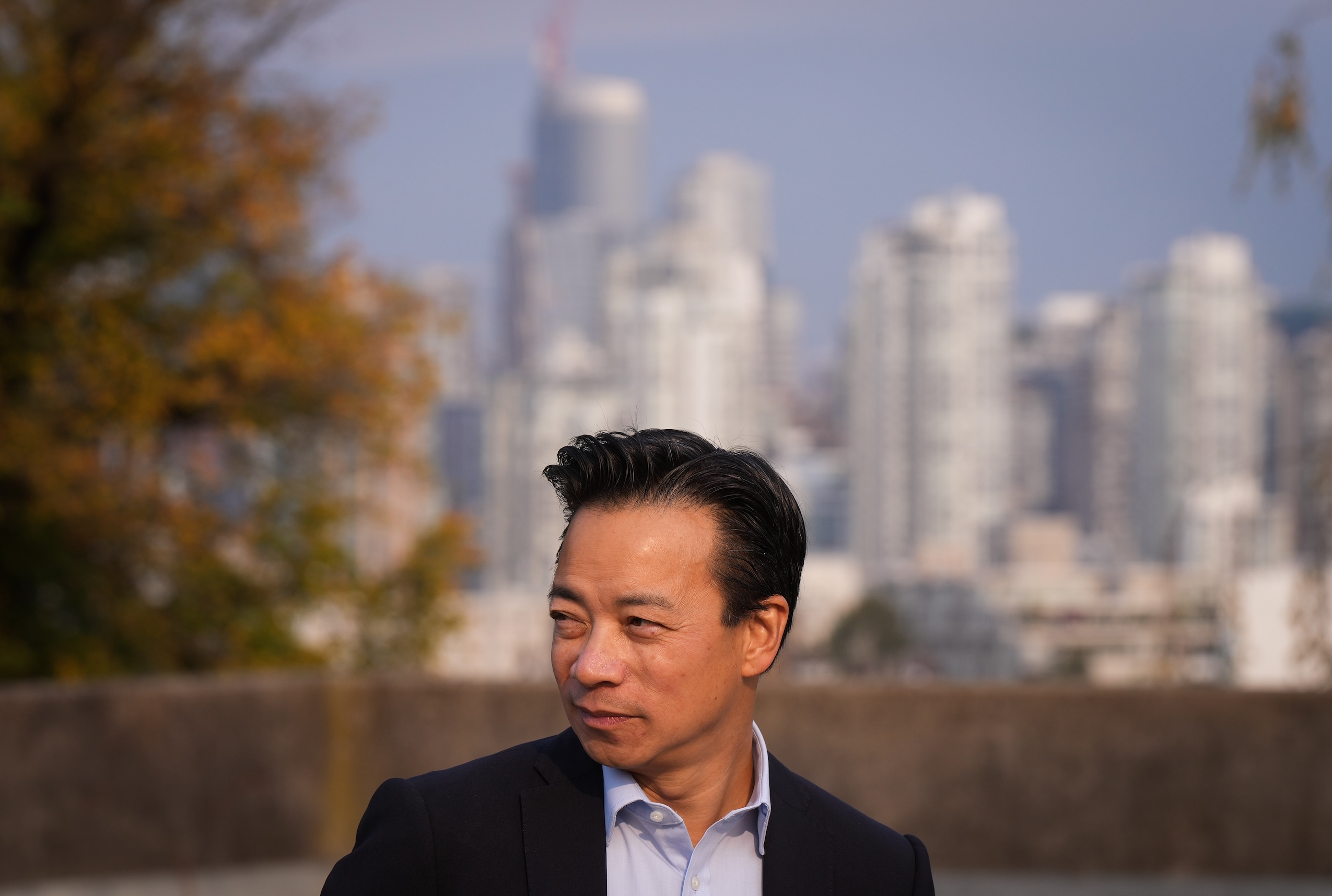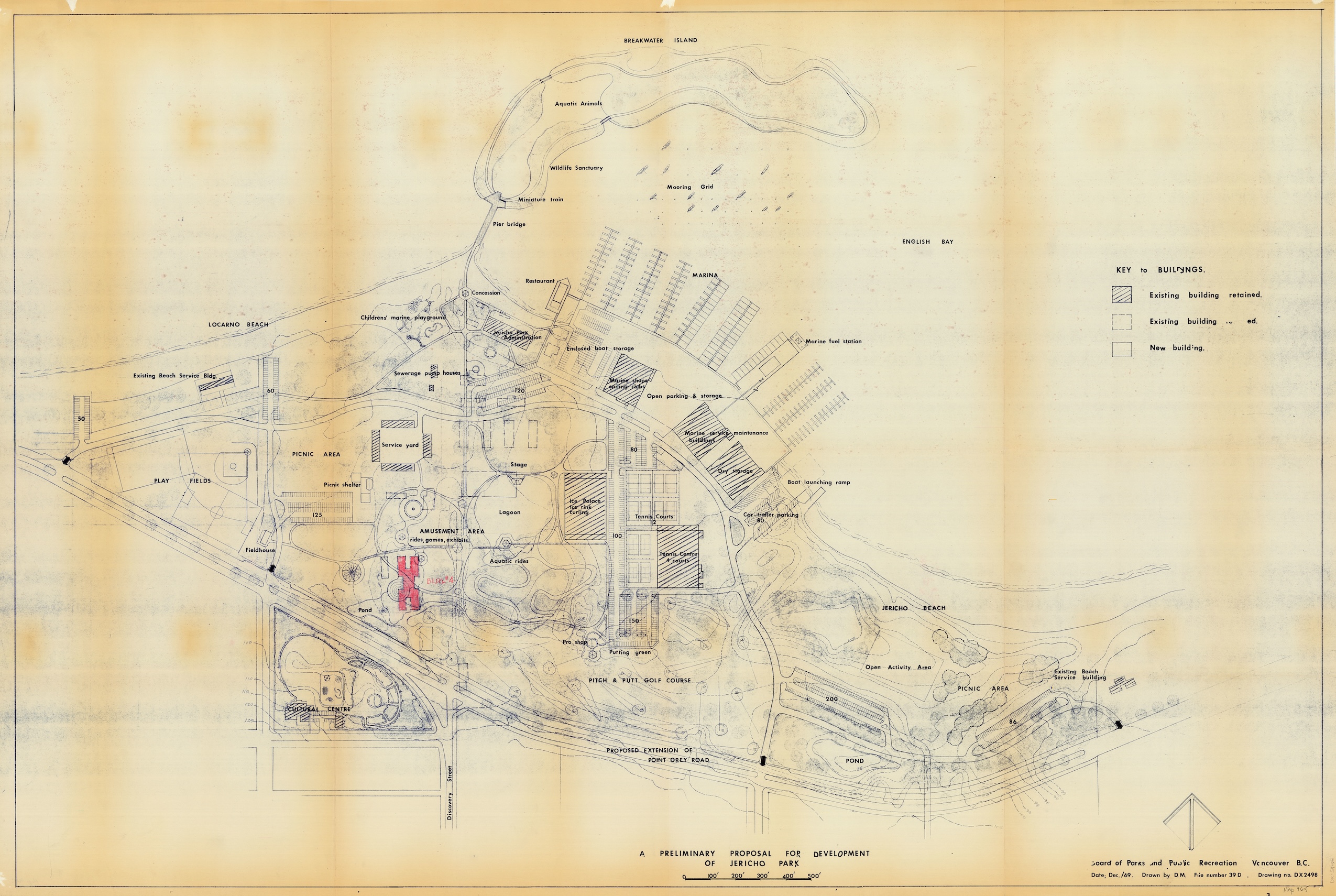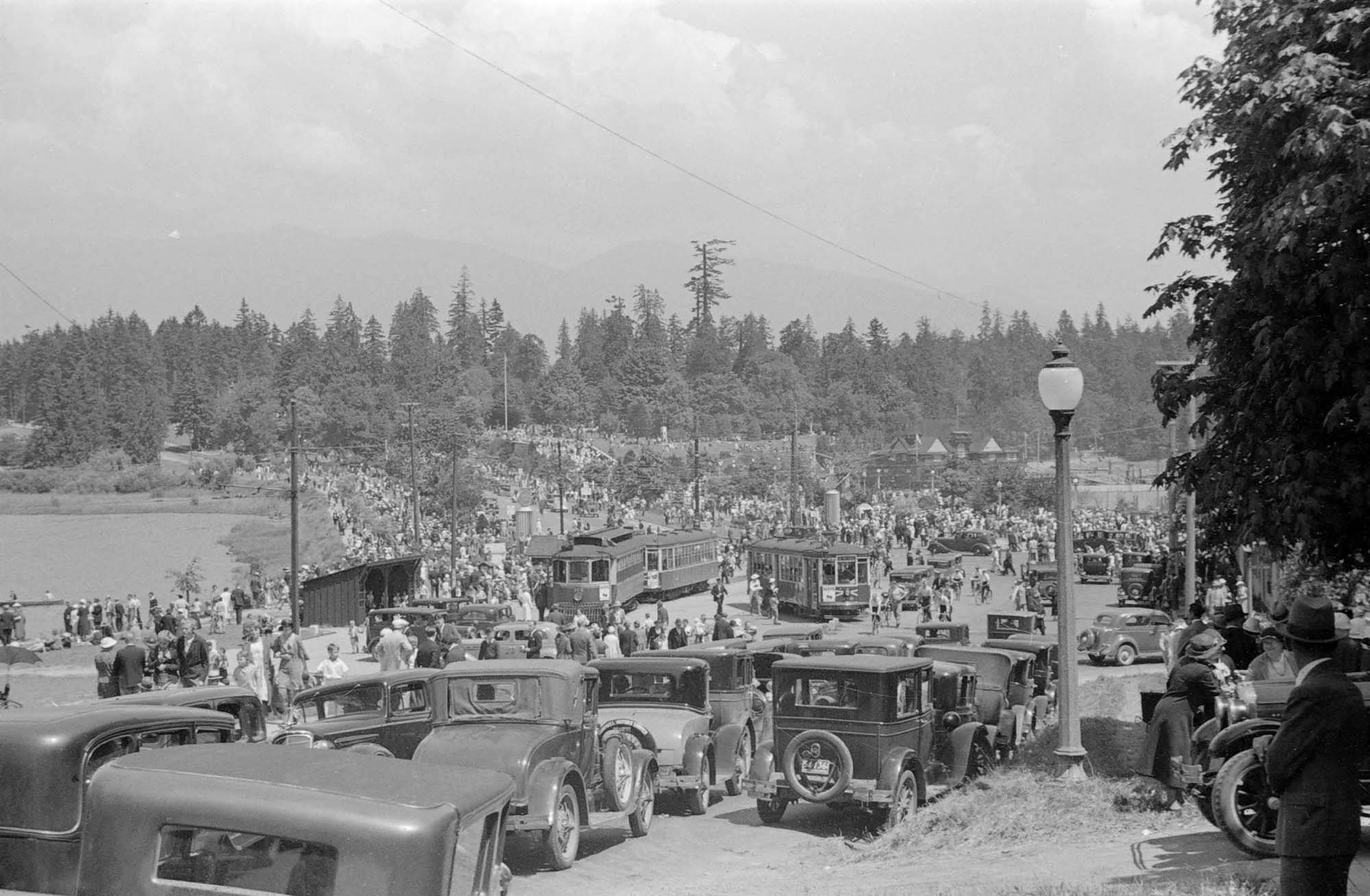
The Narwhal’s in-depth environmental reporting earns 11 national award nominations
From disappearing ice roads to reappearing buffalo, our stories explained the wonder and challenges of...
It’s difficult to know who to root for in the city of Vancouver’s ongoing turf war with its much-maligned, one-of-a-kind local park board.
This is a specialized unit. While most cities have municipal committees created to manage green spaces, Vancouver is the only Canadian city whose park board is elected democratically.
Established by a late 19th-century amendment to the Vancouver Incorporation Act, this seven-commissioner outfit has enjoyed exclusive jurisdiction and control over the city’s public parks for nearly 140 years, protecting and preserving its most precious assets (the seawall, the beaches, Stanley Park) amid rapid growth and rabid development. Many of Vancouver’s most feted attractions — some of the country’s best-known public spaces — would not have survived were it not for the park board.
Still, the board itself is far from beloved; residents have long complained about endless pilot programs, neglected facilities, declining public events and other expressions of the city’s “no-fun” reputation.

But now, the Vancouver park board itself is under threat. Last December, Mayor Ken Sim announced a surprise plan to formally get rid of it.
News of the plan sent shockwaves through Vancouver politics, including Sim’s ABC party, which held a supermajority on the park board, having won six of seven seats in the 2022 election. Upon Sim’s announcement, however, they found themselves in the minority, as three park board commissioners with Sim’s party — booted from the party for opposing Sim’s agenda — immediately became independents.
Sim and his remaining allies insist eliminating the Vancouver park board will make things more efficient, which is probably very true.
That said, it’s hard to believe this endeavour won’t lead to developers carving up Vancouver’s world-class parks, especially as Sim keeps insisting the city is “open for business.” His election was celebrated by the city’s big real estate players, almost all of whom gave big money to the ABC campaign. Billionaire Lululemon founder and Low Tide Properties co-owner Chip Wilson, Sim’s longtime friend, even hosted the mayor-elect’s victory party.
Five months later, Sim’s council voted to return $3.8 million in taxes to the development industry and cancelled an increase to the empty homes tax. Meanwhile, the ABC-controlled Vancouver School Board has been pushing for the sale of public land since taking power.
“The only thing it’s going to allow them to do is strip out park board assets and sell off parts of the park,” ex-ABC Vancouver park board commissioner Brennan Bastyovanszky told the Tyee. “If they [Ken Sim and ABC] are gonna go this far and surprise everybody, there’s only one upside, which is the selling of land … then you have to wonder whether or not that’s the underlying motive for them to do it.” Green Party park board commissioner Tom Digby has also referred to the plan as a “real estate coup d’état.”

It sure seems like Sim has private interests in mind. Just last month, he floated a plan to generate municipal revenue by selling naming rights to public parks. City staff are currently exploring how much money corporate sponsorship might yield. What’s in a name? Not as much as in a real estate deal, one imagines.
Amid speculation about selling off assets, the mayor has insisted he is committed to protecting Vancouver’s green spaces. His council’s motion includes a special amendment to ensure the protection of “permanent public parks.” Granted, nearly half of Vancouver’s 230-odd parks (including large portions of Spanish Banks, Jericho Beach, Sunset Beach and the bulk of Renfrew Ravine Park in East Vancouver) are classified as “temporary,” meaning their park designation could simply be cancelled by council, despite the amendment. Convenient.
Furthermore, the motion to abolish is a full-blown reversal of Sim’s campaign promise to “fix” — not just simply dissolve — a board Sim’s supporters say wastes taxpayers’ money and gets nothing done. One wonders why anyone would even be tempted to take the mayor at his word now.
“This is not what he campaigned on,” Laura Christensen, one of the three commissioners turfed from the ABC party, said. “There was never any comment about removing the park board in any way. If that had been the case, I would not have run with ABC or run for the park board.”
Sim has said this move is the fix.
“We’re talking about a structural issue here,” he said at a city hall news conference. “We committed to the public that we’re going to try to fix it. We had elected a supermajority in that chamber. We can’t fix it. It’s not about the people. It’s about the structure, and no amount of tinkering with that current structure is going to fix it.”

Rather than tinkering, one wonders if simply funding the Vancouver park board in earnest would help. While the park board sets its own annual budget, the city decides how much money to give them. It’s not very much. Other big cities, from New York to nearby Surrey, allocate roughly two-thirds of their property taxes to fund park budgets. Vancouver gives just over half.
Park board advocates and the majority of commissioners have loudly opposed the proposed abolition, arguing Sim’s plan undermines democracy and contravenes Vancouver’s civic charter. In February, the park board voted to seek legal advice in preparation for a forthcoming legal challenge. A truly fascinating court case looms.
Unfortunately for the mayor’s opponents, Vancouver’s charter can simply be changed, and the BC NDP government has signaled its willingness to support Sim’s plan and do just that during the next legislative session, either this fall after the Oct. 19 provincial election or next spring (provided they are reelected). So have the xʷməθkʷəy̓əm (Musqueam), Sḵwx̱wú7mesh (Squamish) and səlilwətaɬ (Tsleil-Waututh) Nations, all of whom recently announced their support for the dissolution of the Vancouver park board, with an eye towards additional tweaks to the charter — so long as the document’s open — to better align with the United Nations Declaration on the Rights of Indigenous People, as promised.
And surprisingly, so have many progressives, who might be inclined to oppose Sim without hesitation on just about everything else. Pressed to defend the park board amid threats from a right-leaning mayor, Vancouver’s left wing seems conflicted.
One Vancouver columnist told me most correspondence he’s received opposing the mayor’s plan goes something like this: “I’m no fan of the park board, but … .”
That definitely tracks, and I get it. When it comes to this particular body, there’s little love lost among the local population.
For one thing, the Vancouver park board has long seemed indifferent to most of the people it serves — its stewardship of public parks has never been particularly balanced. A 2022 University of British Columbia study found Vancouver ranks among the least equitable of Canada’s major cities when it comes to green space access. Compared to 31 counterparts assessed in the study, the link between higher income and greater access to greenness is stronger in Vancouver than anywhere else.

Beyond the inequity, Vancouver’s reputation as a no-fun city is largely the park board’s influence. It took a full-blown pandemic for the board to reconsider its no-drinking policy; somehow this project is still in its pilot phase. Pop-up music venues, art installations and other waggish uses of public space rarely last long. Family-friendly neighbourhood events and festivals are few and far between, and frequently face stodgy opposition. Sometimes it seems like the park board would rather we stay in our homes while the grass grows outside.
And then there’s the century and a half of ruthless colonialism. Park board commissioners are really just stewards of stolen land, after all. First proposed by real estate agent Arthur Wellington Ross, the Vancouver park board was originally created in 1890 to oversee one place, Stanley Park, which needed protection from two perceived threats: real estate speculators who wanted to build there, driving down property values nearby and First Nations people who lived there.
One cannot forget the creation of Stanley Park, like Canada’s other pristine, “protected” landscapes, wasn’t simply because we think parks are a good thing. The insistence the park belongs to everyone and should be enshrined as public land also achieved the explicit colonial goal of dispossessing the people to whom it belonged.
Sixty years after the fact, Squamish Nation Chief August Jack Khahtsahlano recalled road surveyors who carved off a chunk of his family’s home to make way for their survey line, drawing new boundaries, eventually destroying the entire village and paving a road made of discarded shells, bones and other artifacts unearthed along the route. Families at Brockton Point, on the western tip of Stanley Park, were still holding strong in the 1920s while the city erected four totem poles at nearby Lumberman’s Arch, enshrining a legacy with its left hand while demolishing it with the right.

It bears mentioning the Vancouver park board only just recently voted to apologize to the Musqueam, Squamish and Tsleil-Waututh First Nations for taking away their ancestral lands, digging up burial grounds to build roads and playgrounds and other damaging actions, as part of a “colonial audit” conducted in 2018.
“It’s important that we recognize that this is where we come from,” park board chair Stuart Mackinnon said at the time. “Stanley Park was the home to many First Nations peoples and over the course of time they were evicted, removed from the park. What we call our western beaches — Kitsilano, Jericho, Locarno and Spanish Banks — were also home to First Nations people, a gathering place and a place for food collection. They were all removed from there as well.”
In 2021, the park board went a step further, announcing a motion to explore co-management of Vancouver parks with local First Nations. Less than a year later, Sim’s conservative ABC party swept into power, flipping the council, establishing a fleeting supermajority on the park board and moving swiftly to stem the momentum of liberalism in Vancouver civic life.
Most recently, council rejected as “fantasyland” a $300 million, ten-year plan submitted by the Vancouver park board for essential work to blunt the effects of climate change along the West End waterfront. ABC councillors pointed to funding concerns, though it’s hardly the only climate-focused plan rebuffed by this council. (Plus the plan makes no sense if a chunk of this waterfront land won’t be public a decade from now. But I digress.) Meanwhile, Sim remains enthusiastic about hosting the 2026 FIFA World Cup, despite the estimated costs now ballooning north of $500 million.
Prior to that, Sim and his allies proceeded to allocate funds for 100 new Vancouver police department officers and reversed the decision to end the department’s student liaison officer program, putting police back in schools. They dismantled the polarizing bike lane in Stanley Park, restoring the rule of the automobile.
It seems relevant, therefore, that the move to abolish the park board in full comes hot on the heels of the board’s plan to reconcile with First Nations and reckon with Vancouver’s colonial past. Historically, that’s not what the park board is for.
In the end, what we’re left with is two groups of settlers at war over unceded land. There are no heroes in this fight — it’s basically Alien vs. Predator, set in Vancouver instead of just filmed there. No wonder it’s hard to root for anyone.
Get the inside scoop on The Narwhal’s environment and climate reporting by signing up for our free newsletter. On a warm September evening nearly 15...
Continue reading
From disappearing ice roads to reappearing buffalo, our stories explained the wonder and challenges of...

Sitting at the crossroads of journalism and code, we’ve found our perfect match: someone who...

The Protecting Ontario by Unleashing Our Economy Act exempts industry from provincial regulations — putting...
